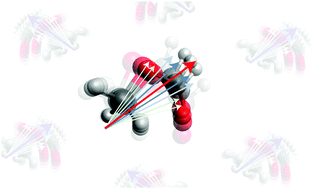A mechanism for ageing in a deeply supercooled molecular glass†
Abstract
Measurements of the decay of electric fields, formed spontaneously within vapour-deposited films of cis-methyl formate, provide the first direct assessment of the energy barrier to secondary relaxation in a molecular glass. At temperatures far below the glass transition temperature, the mechanism of relaxation is shown to be through hindered molecular rotation. Magnetically-polarised neutron scattering experiments exclude diffusion, which is demonstrated to take place only close to the glass transition temperature.

- This article is part of the themed collection: 2021 Emerging Investigators


 Please wait while we load your content...
Please wait while we load your content...